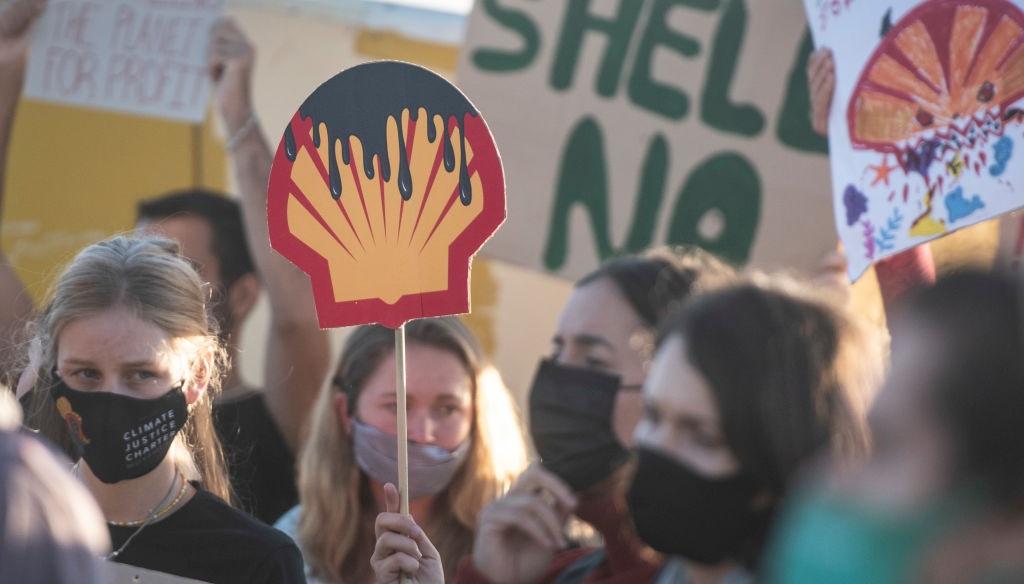Africa-Press – South-Africa. Wild Coast communities want a high court to put an end to a seismic survey by Shell, once and for all.
The legal counsel of nine applicants – including civil society organisation Sustaining the Wild Coast, environmental organisation Greenpeace and other Wild Coast residents – filed the heads of argument at the Eastern Cape Division of the High Court on Saturday, 30 April. Advocate Tembeka Ngcukaitobi, SC, will represent the applicants.
The respondents in the matter include Mineral Resources and Energy Minister Gwede Mantashe, Forestry, Fisheries and Environment Minister Barbara Creecy, Shell Exploration and Production in South Africa, and Impact Africa Limited and BG International Limited.
The Makhanda High Court in December 2021 granted the applicants an interim interdict, temporarily blocking the seismic survey, pending the hearing of Part B of the application – which seeks the court to review and set aside an exploration right allowing the survey to take place. The applicants also want the court to review and set aside the subsequent renewals of the exploration right- in 2017 and 2021.
Shell and Mantashe lost an application seeking leave to appeal the December ruling.
The applicants believe the blasting will cause “significant and irreparable harm” to marine life in the affected area, and this, in turn, will impact the livelihood, constitutional and customary rights of coastal communities.
They assert that Shell and Impact Africa did not obtain the required environmental authorisation to conduct the survey, under the National Environmental Management Act (NEMA), Nor did they “adequately consult” with affected communities when Impact Africa obtained the original exploration right more than eight years ago.
“The consultation carried out by Impact was inadequate – Impact chose to consult with monarchs, rather than the communities themselves,” the court papers read. The applicants highlight that Impact failed to notify affected fishing communities of the proposed seismic survey, and it did not make an effort to “identify, locate and consult” these communities.
Impact Africa’s exploration right was later transferred to Shell.
Wild Coast communities slam Mantashe over ‘insulting’ oil and gas talks with traditional leaders
The applicants are also seeking a declaratory order – that a holder of an exploration right under the Mineral and Petroleum Resources Development Act (MPRDA) – may not undertake any seismic survey, without being granted an environmental authorisation by the Department of Forestry, Fisheries and Environment (DFFE), under the NEMA. The applicants believe that the approval of Shell’s Environmental Management Programme (EMPr) by the Petroleum Agency SA and DMRE is not equivalent to an environmental authorisation under the NEMA.
The applicants believe the Department of Mineral Resources and Energy (DMRE) did not take into account a number of “critical considerations” in granting the exploration right. This includes the impact of the blasting on the livelihoods of affected communities or their spiritual and cultural practices. “These omissions render the grant of the exploration right and Shell’s seismic blasting unlawful and invalid,” the court papers read.
The applicants want the court to “finally interdict” Shell from undertaking seismic survey operations under the exploration right.
Inadequate consultation
The heads of argument unpack how Impact failed to provide communities “proper notice” about the proposed seismic survey and the opportunity to make representations. It indicated that Impact distributed information about the proposed survey via email or its website and in English – which would be exclusionary of the coastal Amadiba community, which did not have email or internet access or most of which cannot read English.
Notices placed in newspapers such as The Times, Die Burger, the Herald and Daily Dispatch similarly were lacking in their reach – as most people affected cannot read English or speak Afrikaans.
“The majority of residents along the Wild Coast speak isiXhosa or isiMpondo. If Impact wanted to engage with them, it should have prepared notices in their languages,” the court papers read. There is also no newspaper circulation in Amadiba or in communities of Dwesa-Cwebe – thereby excluding the communities from accessing information about the survey.
The applicants’ counsel put forward that if notice was given over the radio, where most communities get their news, they would have commented on the proposed survey.
“The Wild Coast communities had not received notification of the comment process. As such, they did not know to submit comments or concerns.” The communities did not know they could register as interested and affected parties, which means their views were not taken into account in the EMPr report, which Impact and Shell so heavily rely on as their environmental authorisation.
The applicants argue that the failure of Impact to “adequately consult” with communities renders the DMRE’s decision to grant the exploration right as “procedurally unfair”.
A lack of the communities’ input means that government did not consider the impact of the seismic survey on the spiritual and cultural practices of communities and their livelihoods as well as the full extent of the environmental Impact of the blasting.
Mantashe on Shell’s Wild Coast exploration: Potential impacts have ‘low significance’
Mantashe has on numerous occasions defended exploration activities in the interest of attracting investment to the country. He has also previously said that the potential impacts associated with the seismic survey are assessed to be of “low significance”.
The papers suggest that the minister did not “apply his mind” to the information on the matter and wholly relied on PASA’s recommendations regarding the issue of harm.
The matter is set down to be heard over three days, from 30 May to 1 June, in Gqberha.
For More News And Analysis About South-Africa Follow Africa-Press






